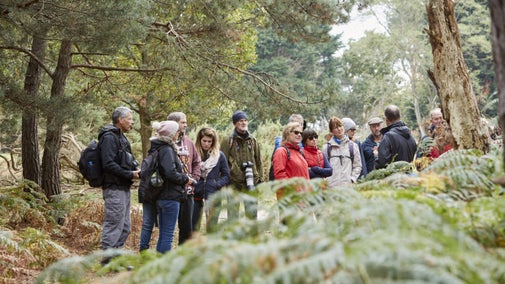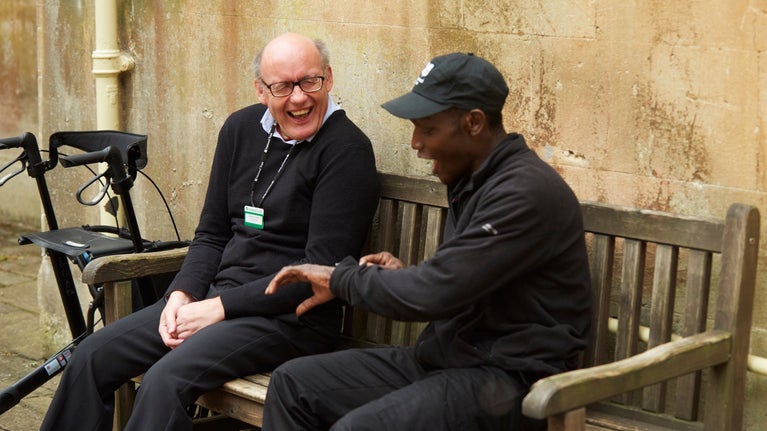
Search our volunteer roles
Whether you're looking to help in the great outdoors, work with the public or get up close and personal with the houses, take a look at what's happening near you.
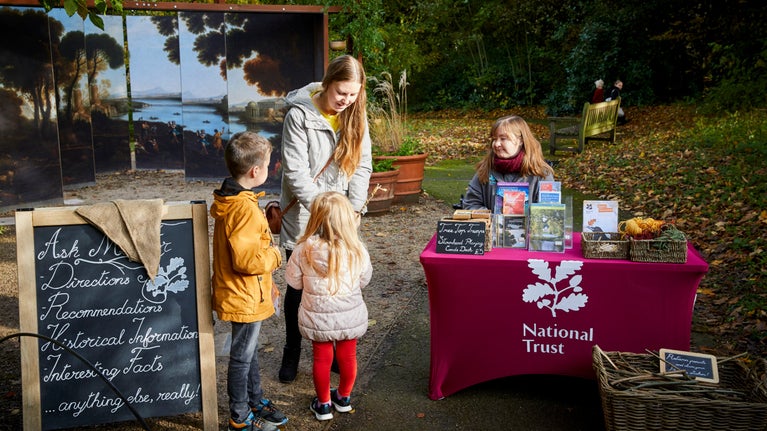
One way to support the National Trust, while also spending time in amazing places and making new friends, is to volunteer. Volunteering is a rewarding experience, but understandably you may have many questions on how you can get involved, what volunteering entails, whether training is included or if you’re qualified enough. The frequently asked questions below will help answer many of these queries.
No, many of our volunteers aren’t members of the Trust.
In general, there’s no age limit. As long as you can make a useful and safe contribution, it won’t harm you and there’s no legal age requirement - driving, for example - then you’re welcome to volunteer.
However, there are some exceptions. In line with our safeguarding practices, anyone under 18 must have permission to volunteer from a parent or guardian and some restrictions may apply in order to keep everyone safe. This may involve younger volunteers volunteering with their parent or guardian.
Yes, but if you're looking for work, you may need to tell your Jobcentre Plus or Jobs and Benefits Office (Northern Ireland) contact. For full details please visit the GOV.UK website.
It’s your responsibility to make sure you can volunteer while in the UK. In general, you'll need a visa which allows you to volunteer or have the right to work in the UK in order to volunteer with the National Trust.
If you're unsure if this applies to you, please contact UK Visas and ImmigationPlease note, we are not able to sponsor or support visa applications.
If you have refugee status or have exceptional leave to remain in the UK then you’re welcome to volunteer for the Trust. Likewise, if you’re an asylum seeker then you can also volunteer. If your final appeal is refused and you’re denied leave to remain then you have to stop volunteering.
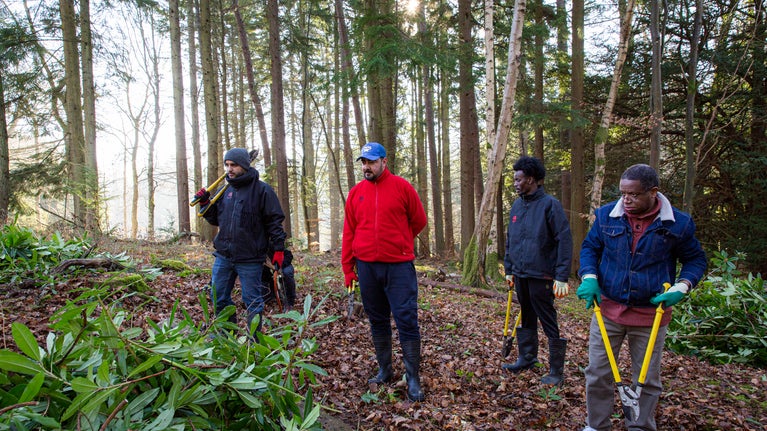
In general, there’s no minimum time volunteers must give but some roles benefit from regular involvements – for example, one shift a week. You can decide with the volunteer manager the arrangements that work for you while also meeting the place's needs.
Many place's and sites also offer one-off volunteering opportunities especially for groups, whether that’s with your family or a group of work colleagues.
No, as a volunteer there’s no pay. We will ensure you don’t lose out financially by covering your agreed out-of-pocket expenses, such as travel between your home and where you volunteer.
Yes, but the training depends on the role. For example, a volunteer countryside ranger might receive formal machinery training, while a room guide will probably learn most by talking to other experienced volunteers.
However, every volunteer receives a thorough induction to their role, so that they feel confident in what they’re being asked to do.
Most properties use word of mouth. Face-to-face briefings or one-to-one chats, for example, keep volunteers informed of what’s happening on site. Many places also produce printed or digital newsletters or post important messages on notice boards. These both keep volunteers informed and ask for volunteers’ input on decisions.
There’s also a dedicated website called 'myvolunteering' where volunteers can claim expenses, record hours and update their rotas. It also showcases correspondent and volunteer stories, contains document resources and provides up-to-date Trust news.
A monthly ‘myvolunteering’ newsletter is produced and there’s a national Facebook group to help volunteers keep in touch and share their experiences and ideas.
Yes. Many of the places run social events to say ‘thank you’ to volunteers, such as Christmas dinners or summer barbecues. Sites also promote the work of their volunteer teams in the local press and internal publications, and we have a long service awards scheme.
In general, people volunteer at sites close to their homes, so we don’t provide accommodation. There may be accommodation provided for specific, longer-term roles if required.
The Trust has insurance cover for legal liability claims, either by or against volunteers working for the Trust, resulting from damage to property or personal injury.
Yes, our Volunteering Charter has been created for, and by, volunteers and staff. We want everyone to have a good experience when volunteering with us and our Charter sets out what this should look like.
It includes a practical guide for volunteers and volunteer managers, along with information on our commitment to volunteering, what volunteers can expect from us and what we ask of our volunteers.

Search for opportunities close to you on the website and once you’ve found the role/s you’re interested in, fill in the relevant application form/s. Someone from the local team will then be in touch to discuss what happens next. This is usually a visit and a chat, but could also be an open day or a more formal recruitment process, such as an interview.
We welcome, where possible, volunteering enquiries from local groups such as schools organising Duke of Edinburgh programmes. We suggest getting in contact with your local place to discuss options.
Yes, many different groups volunteer for the Trust, from youth groups to corporate groups. Contact your local site to find out how your group can get involved.

Whether you're looking to help in the great outdoors, work with the public or get up close and personal with the houses, take a look at what's happening near you.
Our volunteers make it possible for us to preserve nature, beauty and history for future generations. Learn more about the opportunities available and discover what it's like to volunteer from a selection of personal stories.

We offer corporate team days volunteering at a number of our places across England, Wales and Northern Ireland. Find out how to sign up.
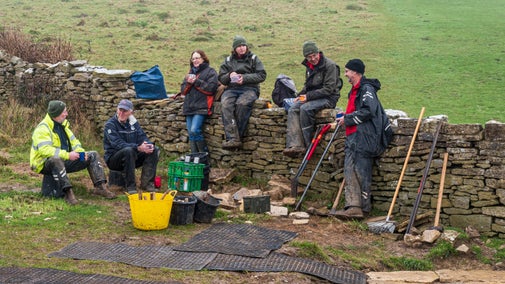
There are many opportunities for volunteering at the places we care for if you’re completing your Duke of Edinburgh’s Award at bronze, silver or gold level.

Have you ever wondered what it’s like to volunteer with us? From perfecting the art of lavender topiary to giving talks at historic houses, a selection of volunteers share their stories about helping out at some of the places we care for.

Our supporter groups are a great way of getting involved with your local place. Find out more about how you can join in.
